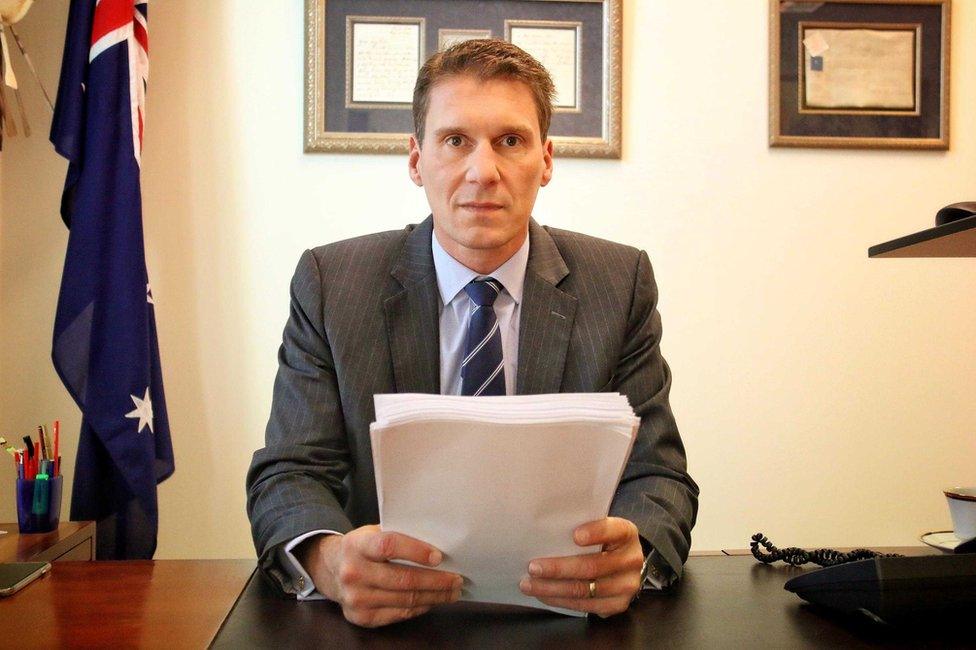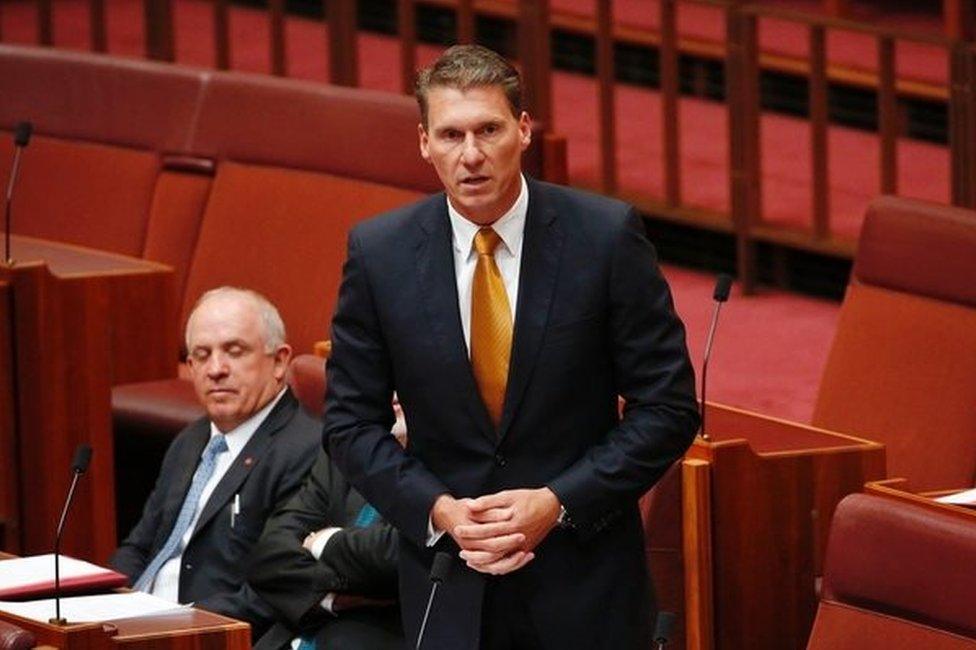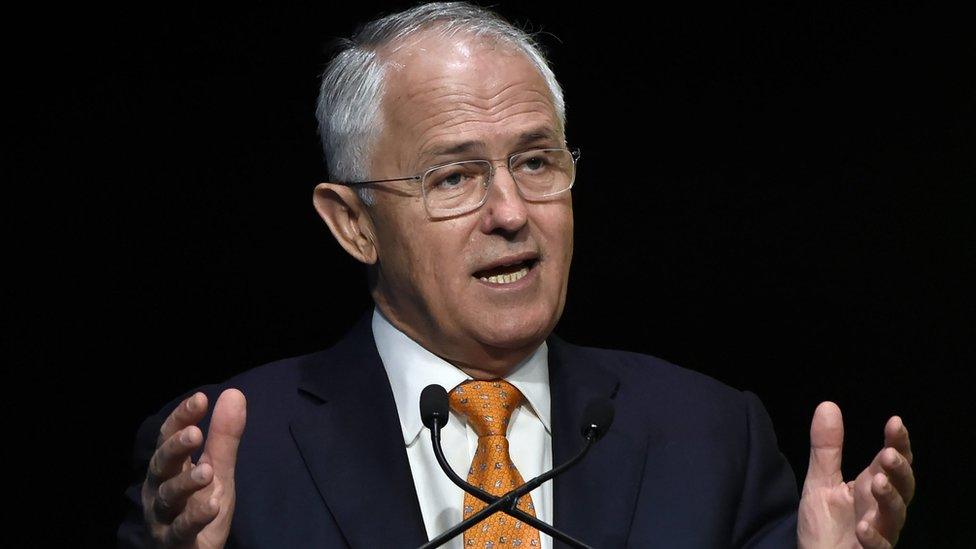Cory Bernardi: Australia senator launches right-wing party
- Published

Senator Cory Bernardi has announced he will start his own party
Australian right-wing Senator Cory Bernardi has defected from the nation's government to launch his own Australian Conservatives party.
Mr Bernardi confirmed his move in Australia's upper house on Tuesday, ending months of speculation.
The outspoken senator has repeatedly criticised PM Malcolm Turnbull's government for being too moderate.
His departure comes as a fresh blow to Mr Turnbull, who holds a precarious majority of one in the lower house.
If Mr Bernardi were to persuade a single MP to join him, Mr Turnbull - whose Liberal party has been hit by infighting and has fallen far behind Labor in opinion polls - would be left with a minority government.
Mr Bernardi's views on topics including same-sex marriage, climate change and abortion have polarised public opinion.
"This has been a very difficult decision for me," Mr Bernardi said. "Perhaps the most difficult one of my political life."
"The level of public disenchantment with the major parties, the lack of confidence in our political process and the concern about the direction of our nation is very, very strong."
Mr Bernardi said he had not spoken "to any sitting MPs" about joining his party, but he would run candidates at the next election.
Who is Cory Bernardi?
The 47-year-old South Australian was first elected to the Senate in 2006 after becoming the youngest ever Liberal Party state president aged 29.
The son of an Italian immigrant father and fourth-generation Australian mother, Mr Bernardi was a stockbroker, financial adviser and elite rower before entering politics.

Mr Bernardi gives his speech in the Senate on Tuesday
Backed by powerbrokers on the Liberal Party's right, Mr Bernardi was appointed a shadow parliamentary secretary, but resigned in 2012 after making controversial comments linking same-sex marriage to bestiality, external.
He has maintained a high profile on the backbench, making regular forays into public debate.
Mr Bernardi has his own website and blog, a podcast, and is the self-published author of seven books - including two for children.
What does he believe?
In an email to supporters in March 2016, Senator Bernardi said his mission was to build a movement "to fight against the tyranny of political correctness".
"Unless the mainstream parties connect with the 'forgotten people' they will choose a different path," Mr Bernardi wrote.
"It's a global phenomenon and would be foolish to think it won't emerge in Australia."
Mr Bernardi has pointed to Brexit and the rise of far-right politics in Europe as evidence of the public losing faith in major parties.

The senator has drawn inspiration from international political events
After spending time in New York observing Donald Trump's presidential campaign, Mr Bernardi wrote he had learned "what needs to be done".
"My time in the United States has been invaluable not only in identifying some of the common problems evident in global politics but also formulating solutions," he wrote.
Among his views that have attracted controversy, Mr Bernardi has been critical of abortion and questioned whether climate change was caused by human activity.
"We will be united by the desire to create stronger families, to foster free enterprise, to limit the size and scope and reach of government while seeking to rebuild civil society," he said on Tuesday.
"We will give hope to those who despair at the current state of Australian politics and who demand a better way for themselves, for their children and for the nation."
How have his old colleagues reacted?
Senior Liberal Party figures have been increasingly strong in their attacks on Mr Bernardi since reports he would defect emerged on Monday.
"The Liberal Party's values are not limited to conservatism. We are Liberals because we are open to new ideas; tolerant of difference," tweeted Defence Industry Minister Christopher Pyne.
Trade Minister Steve Ciobo said: "With one or two exceptions he's never laid a glove on the Labor Party. Every time he's been in the headlines it's been about criticism of his own parties."

PM Malcolm Turnbull now faces an additional challenge in the Senate
Immigration Minister Peter Dutton said voters would be "angry about the betrayal" of Liberal values.
Opposition Leader Bill Shorten said: "A government which can't govern itself, can't govern the nation."
What does this mean for Mr Turnbull's government?
The ruling Liberal-National coalition governs with a wafer-thin majority of 76 seats in the 150-seat House of Representatives.
Mr Turnbull's advantage is greater in the Senate, but Mr Bernardi's defection leaves him with 29 seats compared to Labor's 26.
The government needs 39 votes in the upper house to pass legislation, meaning it relies on support from crossbenchers.
Mr Bernardi takes the number of crossbenchers to 12, although two positions are currently vacant. The left-wing Greens have nine seats.